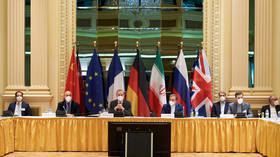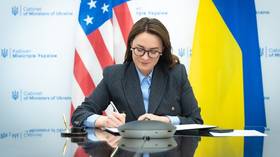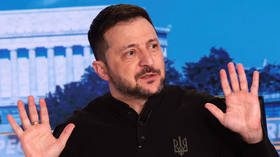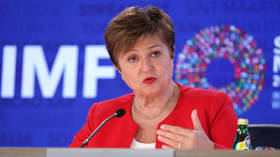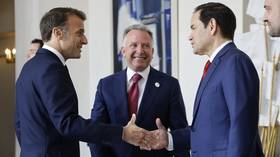Blinken voices concerns over Iran nuclear deal
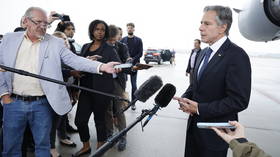
Iran has taken “a step backward” in talks to revive the landmark 2015 nuclear deal, making near-term agreement on the matter “unlikely,” US Secretary of State Antony Blinken said on Monday.
“What we’ve seen over the last week or so in Iran’s response to the proposal put forward by the European Union is clearly a step backward and makes prospects for an agreement in the near-term, I would say, unlikely,” Blinken told a press conference in Mexico City, where he held talks with Mexican President Andres Manuel Lopez Obrador.
According to Blinken, Iran is unwilling or unable to “do what’s necessary” to reach an agreement because Tehran wants to “introduce extraneous issues that make an agreement less likely.”
The top US diplomat was referring to the “final” text of the agreement to revive the deal, which was proposed by the EU on August 8. Since then, the US and Iran have traded responses on the matter several times. However, a State Department spokesperson described Iran’s latest answer, which was submitted earlier this month, as “not constructive.”
According to CNN, Iran doubled down on its demand that the International Atomic Energy Agency (IAEA) should drop its investigation into undeclared uranium traces found at Iranian sites, saying it would be a precondition for returning to the deal. The US and the EU have repeatedly argued they couldn’t negotiate on behalf of the IAEA, insisting it was a separate issue unrelated to the nuclear agreement.
In late August, the US State Department expressed optimism regarding the prospects of a new agreement, saying it was “encouraged by the fact that Iran appears to have dropped some of its nonstarter demands,” including the removal of the Islamic Revolutionary Guard Corps, an influential branch of Iranian Armed Forces, from the US Foreign Terrorist Organizations list.
The initial nuclear deal signed in 2015 by Iran, the US, UK, France, and Germany – as well as Russia, China, and the EU – saw Tehran agree to certain restrictions on its nuclear industry in exchange for the easing of economic sanctions and other incentives.
In 2018, the accord, however, was torpedoed by the US under then-President Donald Trump, who unilaterally withdrew from it, saying it was fundamentally flawed.
As a result, Iran started gradually reducing some of its commitments under the accord, such as the level of enriched uranium it produces, which could potentially enable Tehran to build an atomic bomb. According to the Iranian authorities, however, this “is not on the agenda.”
